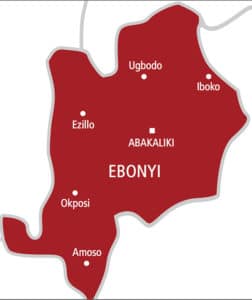Ebonyi State is one of the south-eastern states in Nigeria. It shares borders with Cross Rivers State to the east, Enugu State to the west, Benue State to the north, and Imo and Abia to the south.

Inhabitants of Ebonyi are called Ebonyians. They are primarily made up of Igbos who speak several dialects of the language.
Ebonyi State is made up of 13 Local Government Areas (LGAs). Due to the availability of arable land, Ebonyi relies mainly on Agriculture. They are one of the leading producers of crops such as Cocoyam, Rice, Natural Rubber, etc. There are speculations of up to 25 mineral resources in Ebonyi State, but only a few exist in commercial quantities.
List of mineral resources in Ebonyi State
Lead-Zinc
Lead and zinc are usually found and mined together. The most significant lead-zinc deposits in Nigeria are found in Ishiagu, Enyingba, Ameka, and Ameri areas in Ebonyi State.
Salt
Commonly referred to as the “salt of the nation” state, Ebonyi has large salt deposits in Abakiliki, Ikwo, Uburu, Okposi, and Ohaozara areas.
Limestone
Limestone is used in the production of cement, animal feeds, glass, and water treatment. Its deposits can be found in Nkalagu, Azuinyaba (Ishielu LGA),
Ngbo and Effium (Ohaukwu LGA), and Ebonyi, Ikwo, and Izzi LGAs.
Granite
Granite is used for building roads, countertops, paving stones, and other construction works. It can be found in Ishiagu and Otam.
Other resources are:
- Kaolin
- Barytes
- Quartz
- Sulphur
- Oil shale
- Bentonite
- Natural gas
- Marble
Major towns
- Abakaliki (State capital)
- Afikpo
- Onueke
- Ishiagu
- Oziza
Agricultural resources
- Rice
- Cocoyam
- Cassava
- Maize
- Natural Rubber
- Yam
- Groundnut
- Cowpea
- Fishing
- Livestock farming
